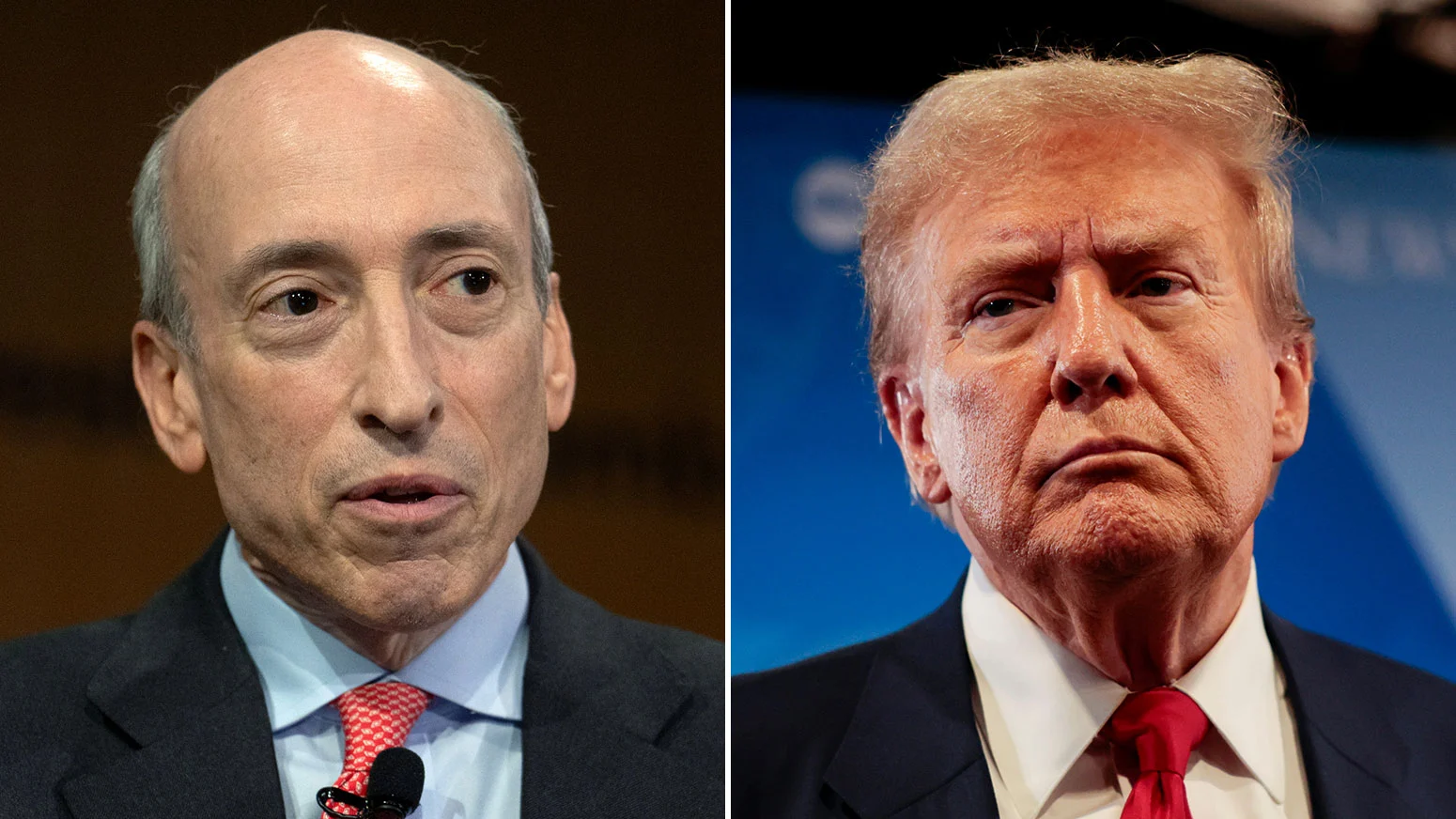Trump Poised to Announce Gary Gensler’s Replacement at SEC Tomorrow
03.12.2024 13:15 2 min. read Kosta Gushterov
Donald Trump is gearing up to reveal his nominee for the next head of the Securities and Exchange Commission (SEC), fulfilling a campaign promise to overhaul the agency's leadership.
The announcement, expected tomorrow, signals a sharp break from the regulatory approach of outgoing chair Gary Gensler, who has already confirmed his departure effective January 20.
Gensler’s tenure at the SEC has been marked by a crackdown on cryptocurrencies and contentious reforms targeting financial transparency. High-profile lawsuits against major crypto exchanges like Binance and Coinbase exemplify his aggressive stance on regulation. However, his approach has drawn criticism from industry leaders, Wall Street executives, and even within the SEC itself, where internal dissatisfaction led to increased staff turnover.
Trump’s selection process has reportedly narrowed to four key contenders: Paul Atkins, a former SEC commissioner; Dan Gallagher, Chief Legal Officer at Robinhood; Robert Stebbins, a partner at Willkie Law Firm; and Mark Uyeda, currently serving as an SEC commissioner. The new leader is anticipated to adopt a more crypto-friendly policy framework and revamp the SEC’s overall regulatory philosophy.
During his campaign, Trump vowed to remove bureaucratic obstacles stifling innovation, pointing to Gensler’s administration as an example of overreach. He described his vision for a pro-innovation regulatory environment as essential to fostering growth, particularly in emerging markets like cryptocurrency. By installing new leadership at the SEC, Trump aims to shift the agency’s focus and direction to align with this vision.
-
1
Market Odds of a U.S. Recession in 2025 Drop in Half Since May
05.07.2025 18:30 2 min. read -
2
What Brian Armstrong’s New Stats Reveal About Institutional Crypto Growth
29.06.2025 15:00 2 min. read -
3
Vitalik Buterin Warns Digital ID Projects Could End Pseudonymity
29.06.2025 9:00 2 min. read -
4
Donald Trump Signs “One Big Beautiful Bill”: How It Can Reshape the Crypto Market
05.07.2025 9:56 2 min. read -
5
Toncoin Launches UAE Golden Visa Program Through $100,000 Staking Offer
06.07.2025 12:04 2 min. read
BitGo Files Confidentially for IPO With SEC
BitGo Holdings, Inc. has taken a key step toward becoming a publicly traded company by confidentially submitting a draft registration statement on Form S-1 to the U.S. Securities and Exchange Commission (SEC).
Crypto Greed Index Stays Elevated for 9 Days — What it Signals Next?
The crypto market continues to flash bullish signals, with the CMC Fear & Greed Index holding at 67 despite a minor pullback from yesterday.
Banking Trade Groups Urge OCC to Halt Digital Trust Bank Approvals
Five major banking associations are urging the Office of the Comptroller of the Currency (OCC) to delay approval of new national trust bank charters for digital asset firms, including Ripple, Fidelity Digital Assets, National Digital TR CO, and First National Digital Currency Bank.
U.S. Public Pension Giant Boosts Palantir and Strategy Holdings in Q2
According to a report by Barron’s, the Ohio Public Employees Retirement System (OPERS) made notable adjustments to its portfolio in Q2 2025, significantly increasing exposure to Palantir and Strategy while cutting back on Lyft.
-
1
Market Odds of a U.S. Recession in 2025 Drop in Half Since May
05.07.2025 18:30 2 min. read -
2
What Brian Armstrong’s New Stats Reveal About Institutional Crypto Growth
29.06.2025 15:00 2 min. read -
3
Vitalik Buterin Warns Digital ID Projects Could End Pseudonymity
29.06.2025 9:00 2 min. read -
4
Donald Trump Signs “One Big Beautiful Bill”: How It Can Reshape the Crypto Market
05.07.2025 9:56 2 min. read -
5
Toncoin Launches UAE Golden Visa Program Through $100,000 Staking Offer
06.07.2025 12:04 2 min. read


